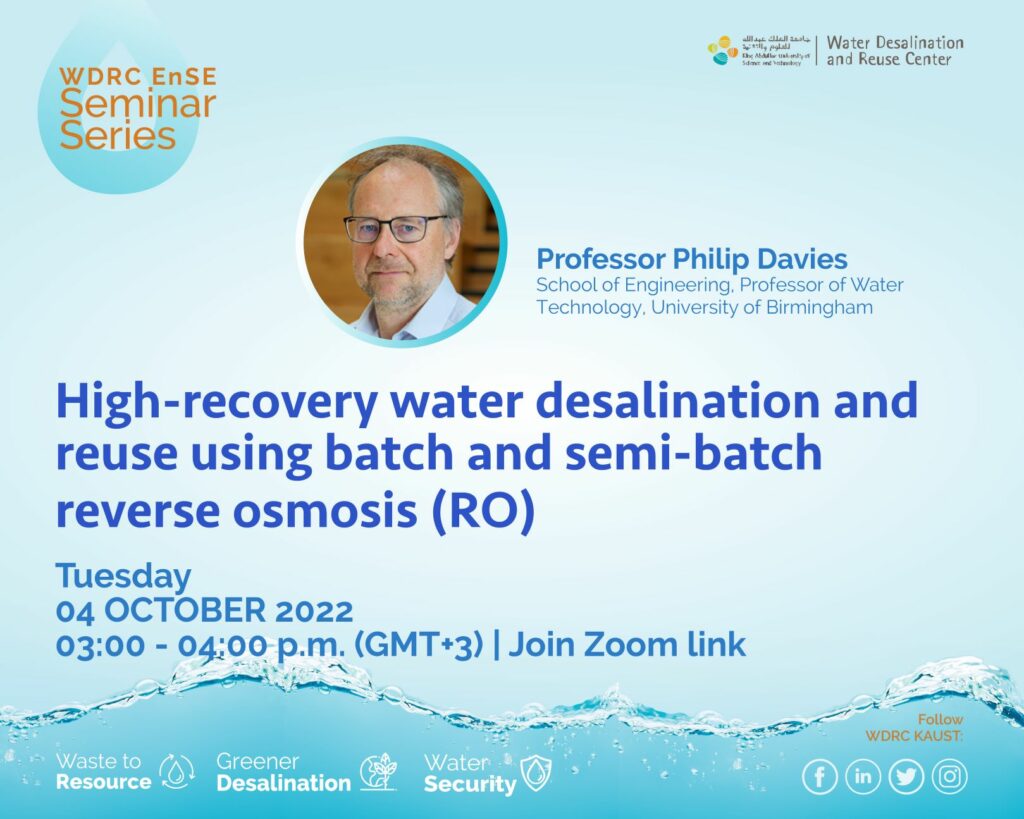
Tuesday, October 4
3:00 – 4:00 p.m.
On Zoom
High-recovery water desalination and reuse using batch and semi-batch reverse osmosis (RO)
By Philip Davies, School of Engineering, University of Birmingham, Edgbaston, Birmingham, UK
Abstract
There are several drivers for high-recovery desalination processes, such as the need for management of brines and effluents, reuse of water, and recovery of minerals and resources from effluent streams. However, increased recovery generally results in increased specific energy consumption. Thermal desalination processes are effective for high-recovery and zero liquid discharge applications, but these processes also have very high energy footprint. There is therefore growing interest in high-recovery membrane RO processes to reduce or avoid the need for thermal processing. Several novel approaches using membranes have been reported in the literature, some of which have been introduced to the market. Among these, batch and semi-batch RO promise to minimize the energy consumption of RO desalination using existing components and membranes.
In this seminar, I will explain the experience gained with batch and semi-batch RO at University of Birmingham, focusing on a new hybrid mode of operation that allows the system to be both compact and efficient. I will discuss applications and current projects in groundwater desalination and metal plating wastewater processing. I will also outline, from an academic viewpoint, some of the steps towards the commercializing the technology and initial successes in this area.
About the speaker
Philip Davies has pursued a varied industrial and academic research career, including projects in solar energy, desalination, solar-powered cooling, and seawater greenhouses. His current research at University of Birmingham focusses on water technologies to help with issues of resource scarcity in arid regions. For example, he is coordinating INDIA H2O, a consortium project supported by the EU-India Water Cooperation Programme, which aims to demonstrate high-recovery water treatment of saline groundwater and wastewater in Gujarat, India.
He is also participating in IntelWATT, a project under the EU Horizon 2020 Programme, which is about “Intelligent Water Treatment for water preservation combined with simultaneous energy production and material recovery in energy intensive industries”. He has a BSc from Imperial College, London, and a doctorate from University of Oxford.

